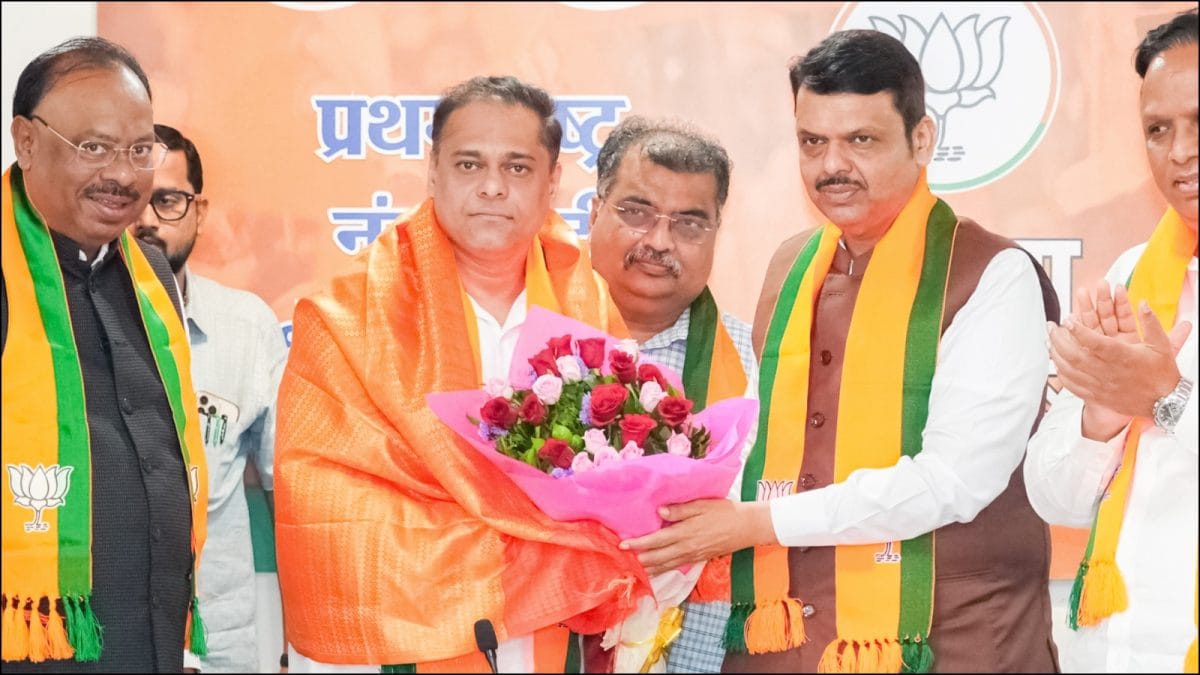ARTICLE AD BOX
Relief for the middle class and poor was at stake as the GST Council meeting stretched past 7 pm on Wednesday. With opposition-ruled states resisting tax reforms, Finance Minister Nirmala Sitharaman insisted that the people could not be kept waiting another day.

Finance Minister Nirmala Sitharaman, Union Minister of State for Finance Pankaj Chaudhary and Revenue Secretary Arvind Shrivastava during the 56th GST Council meeting. (PTI photo)
What was expected to be a routine GST Council meeting on September 3 turned into a high-stakes late-night battle, with opposition-ruled states digging in their heels and Finance Minister Nirmala Sitharaman refusing to let the matter slip to the next day, sources revealed.
According to sources, the government had done its homework well in advance. For six months, Nirmala Sitharaman had held back-to-back meetings with different groups, laying the groundwork for GST rate cuts. Prime Minister Narendra Modi’s instruction was clear — the middle class and poor must get relief, and that decision had to be implemented without delay. Home Minister Amit Shah also convened separate meetings to ensure no political row later over taxation of sensitive items and to reassure states on revenue concerns.
But when the council gathered, the consensus was anything but easy.
Sources said opposition-ruled West Bengal, Punjab, Kerala, and Karnataka strongly opposed rate cuts, citing fear of revenue loss. The meeting, slated to end by 7 pm, dragged late into the night, stretching beyond 9.30 pm.
While Punjab and West Bengal eventually softened their stance, Kerala and Karnataka held firm, insisting on concrete assurances from the Centre on compensation. Some even pressed that the decision be postponed till the next day.
At this point, sources said, Sitharaman drew a hard line. She told the gathering she was ready to sit through the night if needed, but relief for the people could not wait another day.
The deadlock tested the patience of other states. Sources said Chhattisgarh’s Finance Minister OP Choudhary broke the silence with a suggestion: if consensus wasn’t possible, why not put the matter to vote?
In the council’s history, voting had happened only once before, on the GST for lottery.
When Sitharaman asked members to state clearly if they wanted voting, opposition states grew wary, sources said. Blocking relief through a vote risked political backlash. In the end, West Bengal stepped in to persuade Kerala and Karnataka to climb down, sources added.
Only then did consensus emerge, clearing the way for Sitharaman to announce the decision late that Wednesday night.
To calm nerves the Finance Minister reassured states that none would be treated unfairly. Sources said that Nirmala Sitharaman, gesturing to the rectangular table in the room, said that the money there belongs to both the Centre and the states. If states lose, the Centre loses too, Sitharaman said, but added that today (Wednesday), the people must get relief.
And with that, after six months of preparation and hours of drama, the breakthrough came. Following the meeting, Finance Minister Nirmala Sitharaman on Wednesday announced the biggest rate overhaul, rolling out a simplified two-slab structure under what is being dubbed as “GST 2.0.” The sweeping changes cut taxes on a wide range of consumer essentials, medicines, and automobiles, while introducing a special high tax slab for luxury and sin goods.
- Ends
Published On:
Sep 4, 2025



.png)
.png)
.png)
















 1 hour ago
3
1 hour ago
3








 English (US) ·
English (US) ·